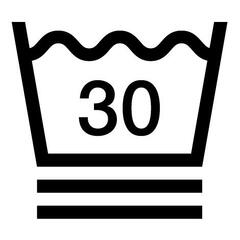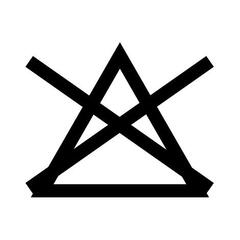What is the comfort temperature?
All our sleeping bags display the comfort temperatures tested by an independent laboratory (AITEX), in accordance with the international standard ISO 23537-1: 2022.
The comfort temperature is the minimum temperature at which an average person (woman, 25 years old, 60kg, 1.60m) is comfortable, without feeling cold, in a relaxed position.
Choose your sleeping bag according to this criterion.
What is the limit temperature?
The limit temperature is the minimum temperature at which an average person (man, 25 years old, 70kg, 1.73m) can sleep in a curled-up position without feeling cold.
And, for your information, the extreme temperature is the minimum temperature at which a person can survive (risk of hypothermia) for 6 hours. This refers to safety, and not comfort.
Which mattress should I use this sleeping bag with?
The protocol for measuring the thermal performance of a sleeping bag is to use a mattress with a thermal resistance corresponding to an R-value of 4.8.
If you use a less insulating mattress, the thermal performance of your sleeping bag will be lower.
We therefore recommend that you use an insulating mattress for better thermal comfort.
Some advice to consider before you get into your bag
Dress simply (1 layer of clothing is enough).
Warm-up your extremities: hats, gloves, socks, hand/feet warmers, rubdowns, etc. A flask of hot water can be used as a hot water bottle (as long as there's no chance of it accidentally opening!).
Contract your muscles (70% of the energy consumed is converted into heat) but don't make any movements that cause cold draughts.
Use a bag liner to optimise warmth and avoid washing your sleeping bag too frequently.
Style
The mummy shape optimises thermal insulation (no loss of heat because there is not much air flow or draughts) and saves space, which means that your movements are restricted.
Width at the shoulders 72cm, height at the feet 26cm in size L.
Weight and dimensions
Size S: 750g, user up to 1.60m tall. Bag dimensions: Ø 15 x 34cm. Volume 6.1 litres. 380g of down/feathers.
Size M: 850g, user from 1.60m to 1.70m tall. Bag dimensions: Ø 16 x 34cm. Volume 6.9 litres. 440g of down/feathers.
Size L: 950g, user between 1.7m and 1.85m. Bag dimensions: Ø 17 x 34cm. Volume 7.8 litres. 500g of down/feathers.
Size XL: 1,050g, user from 1.85m to 2m tall. Bag dimensions: Ø 18 x 34cm. Volume 8.7 litres. 560g of down/feathers.
Functions
Anatomical hood with good coverage and drawstring adjustment.
A baffle along the zip prevents heat loss.
Double-slider zips for optimal ventilation.
Brick baffle construction to reduce thermal bridges.
The advantages of a duck down and feather filling
The filling power of down has 3 advantages for mountain sports:
- Thermal insulation thanks to the air trapped in the down and feathers
- Ultra low weight: down is lighter than synthetic wadding while offering the same degree of warmth. This saves even more weight in your backpack
- Ultra-compressible.
How to measure the fill power of a down and feather wadding?
The fill power is a measure of the down's thermal insulation capacity and its potential to "trap" air. It is expressed in CUIN (cubic inches).
So, down with a higher fill power (higher CUIN number) will occupy more space, trap more air and provide greater thermal insulation.
For this sleeping bag with its 90% down / 10% feathers filling, the fill power is guaranteed to be 800CUIN or more (international IDFB standard).
How to maintain a down sleeping bag?
Even if you regularly use a bag liner, you will need to wash your down bag from time to time. Follow our guidance by copying the link below:
https://www.forclaz.co.uk/how-to-look-after-a-down-sleeping-bag
In short:
1/ machine wash, 30°, with 2 or 3 tennis balls. Gentle spin cycle.
Use special detergent for washing down (ref: 8609821)
2/ tumble dry with 2 or 3 tennis balls, and repeat 2 or 3 times until it is completely dry.
How to repair your sleeping bag
On a trek, you can snag a sleeping bag, it happens! The good news is that it can be repaired to prevent the tear from getting bigger and the feathers from escaping.
To do this, we recommend that you use self-adhesive repair patches (ref: 8584596) or ask one of our technicians to do this for you in the workshop of your Decathlon store.
Find out more:
https://www.forclaz.co.uk/how-to-look-after-a-down-sleeping-bag
Warranty
This sleeping bag is guaranteed for a period of 5 years from the date of sale indicated on the receipt. The product covered by the guarantee will be repaired or exchanged free of charge. The warranty covers product defects excluding any resulting from normal wear and tear and those resulting from abnormal use. The product and sales receipt are required for this special 5-year warranty to be valid.




